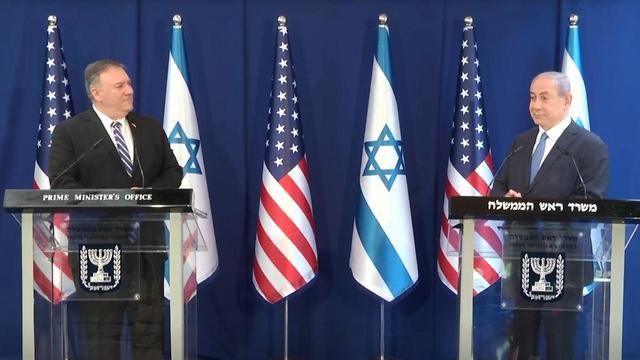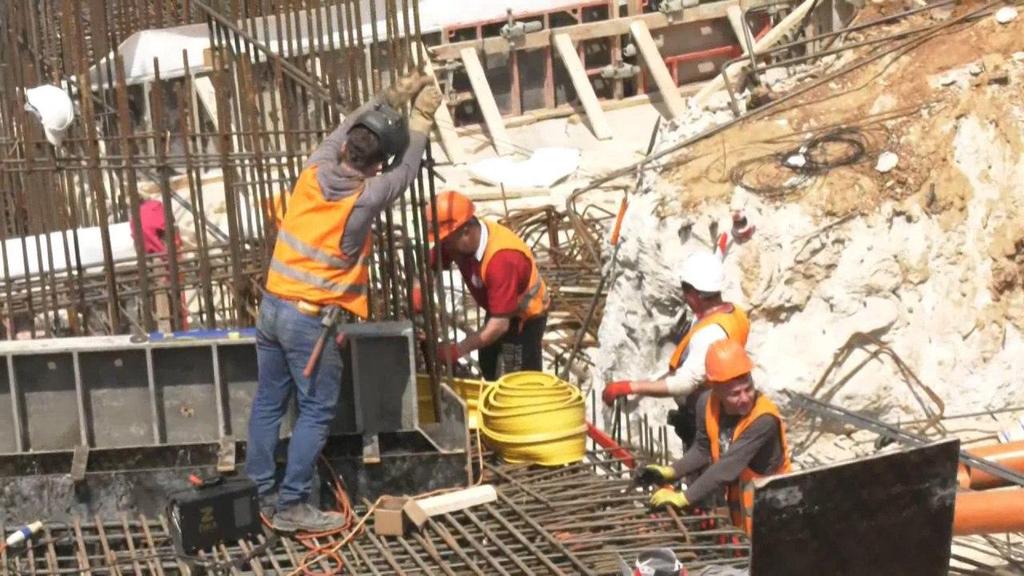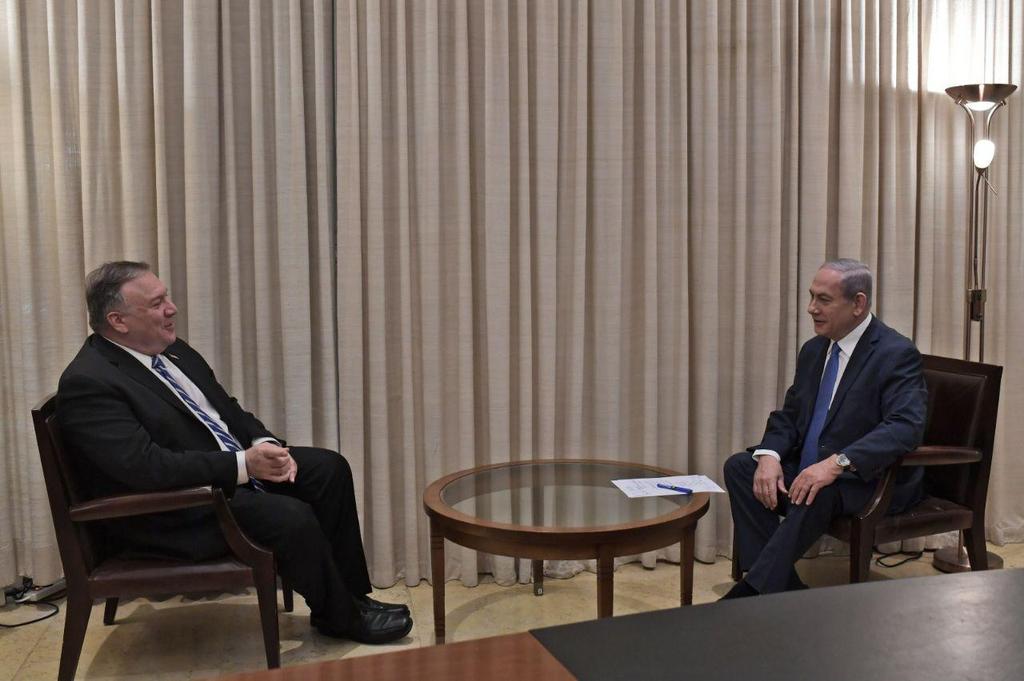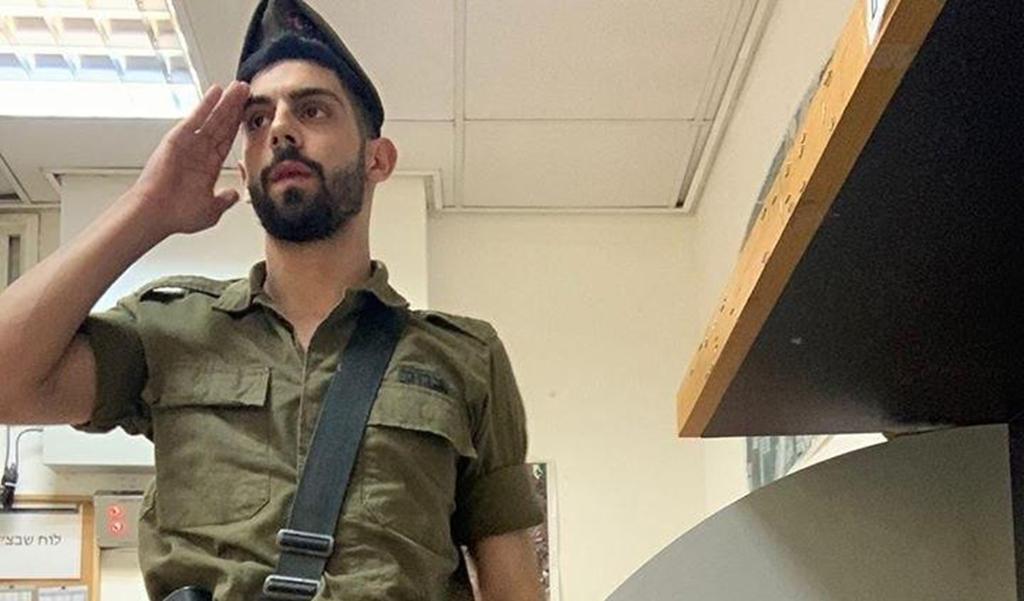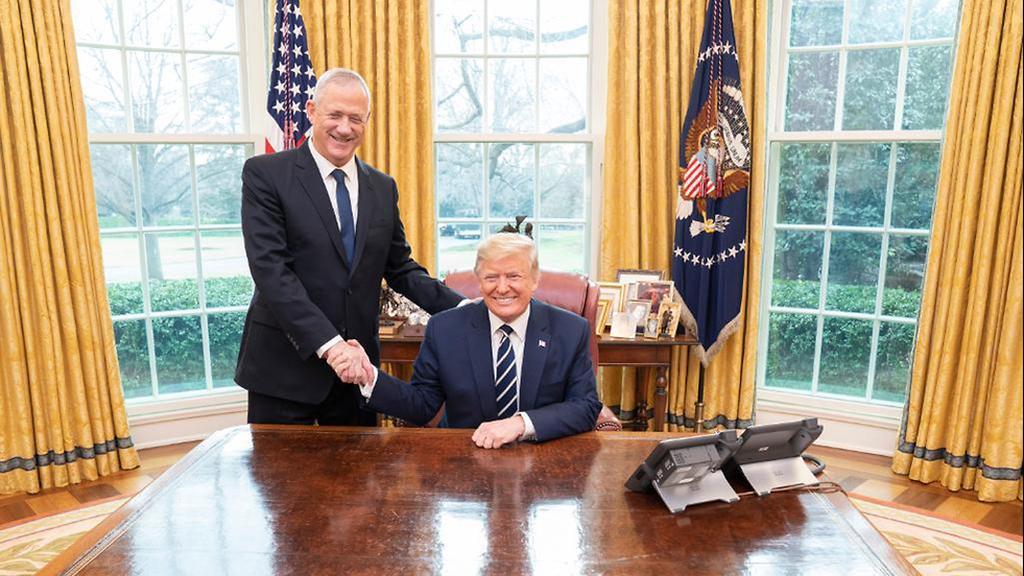Benjamin Netanyahu and Mike Pompeo singled out China and Iran when the two met in Jerusalem on Wednesday as the U.S. secretary of state arrived in Israel for wide-ranging talks with the prime minister and his new political partner Benny Gantz.
"We have a lot to talk about," said Netanyahu in a joint public statement in Jerusalem ahead of their face-to-face talks. Pompeo landed in Israel early Wednesday for talks on regional issues and the spread of coronavirus
"The first thing is the plague. The corona plague is something that challenges the entire world, our two countries and everyone else, and we'd like to talk about strengthening our cooperation and our partnership in battling the coronavirus plague," Netanyahu said.
Pompeo took a swipe at China, where the new coronavirus first emerged, over what he said was its lack of transparency in dealing with the outbreak.
He told Netanyahu: "You're a great partner, you share information - unlike some other countries that try and obfuscate and hide that information - and we'll talk about that country, too."
Trump and his senior officials have engaged in a war of words with China, saying it failed to inform the world fast enough about the dangers it posed and muzzled those who raised the alarm. Beijing strongly denies the charges.
Pompeo did not name China and did not give specific examples of Israeli cooperation in the fight against coronavirus.
The United States has previously cautioned Israel against potential security threats from Chinese investment in Israel, prompting the Netanyahu government to set up a committee last October to vet such projects.
The China Railway Tunnel Group is currently building Tel Aviv's new light rail along with Israeli company Solel Boneh.
"We so deeply appreciate the fact that this is your first trip abroad for some time and you are making it to Israel for six hours, I think this is a testament to the strength of our alliance and the strength of President Trump's commitment to the State of Israel," the prime minister said.
Netanyahu also made reference to Iran, which he referred to as "something else plaguing our region."
"I want to express my appreciation for the strong position that the president and you and your administration put forward against Iran, first by withdrawing from the dangerous Iran [Obama-brokered nuclear] deal and second by taking on the masters of Iranian terror and third by ...continuing the arms embargo against Iran that has not stopped for a minute its aggressive designs and its aggressive actions against Americans, Israelis and everyone else in the region," the prime minister said.
He said he hoped the two would "discuss how we continue in our partnership to combat and confront and roll back Iran's aggression."
Regarding the decades-long conflict with the Palestinians, Netanyahu told Pompeo that the incoming unity government is a chance for peace in the region.
Netanyahu said the new government offered "an opportunity to promote peace and security based on the understandings I reached with President [Donald] Trump."
The prime minister was referring to the Mideast peace plan unveiled by Trump - with Netanyahu at his side - at the White House in January. The plan, which calls for Israel to claim sovereignty over its West Bank settlements and the strategic Jordan Valley, was immediately condemned by the Palestinian Authority.
Pompeo also expressed his condolences on the death of an IDF soldier during a West Bank raid a day earlier, and reiterated that "Israel has the right to defend itself and America will consistently support you in that effort."
One of the key items on the agenda in Pompeo's talks with Netanyahu and Gantz was Israel's stated intention to annex parts of the West Bank - a move certain to enrage the Palestinians and much of the Arab world as well as many of Israel's Western allies.
Pompeo said "there remains work yet to do and we need to make progress on that."
Ahead of the visit, Pompeo told the Israeli daily Israel Hayom on Tuesday that the meeting was important enough to justify flying to Israel for face-to-face talks despite the pandemic and that they would discuss efforts to keep Iran from obtaining nuclear weapons, the Trump administration's Mideast plan, and efforts to combat the coronavirus.
6 View gallery
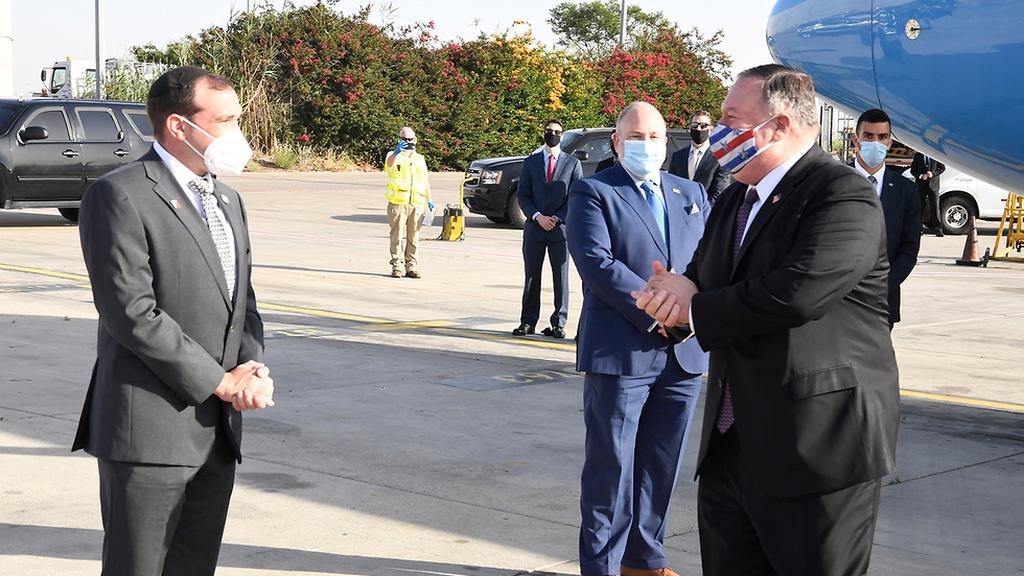

Mike Pompeo is greeted by Israeli officials upon his arrival in Tel Aviv
(Photo: U.S. Embassy )
Netanyahu and his new coalition partner, Blue and White party leader Benny Gantz, postponed the swearing-in of their government until Thursday to accommodate Pompeo's visit.
The secretary of state declined to say whether the administration supports unilateral annexation by Israel, saying he was coming to hear Netanyahu and Gantz's perspectives on the matter.
U.S. Ambassador David Friedman, an architect of the Trump administration's plan, has said Israel could begin annexing territory within weeks.
Friedman, who is currently ill but tested negative for the coronavirus, will not be meeting Pompeo due to what the U.S. Embassy described as "upper-respiratory symptoms."
The Palestinians have rejected Trump's plan and cut ties with the Trump administration in 2017 over its pro-Israel stance.
Their chief negotiator Saeb Erekat said Pompeo's team had not reached out ahead of the visit.


